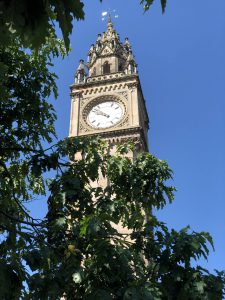
There are no right answers here, but my choice for the greatest Christmas movie of all-time is A Christmas Story. You can’t convince me otherwise. I love it so much that I bought a leg lamp for our front window. Every year, even before we’ve purchased a tree, the leg lamp makes its appearance—and we have copious amounts of glue, should anything happen.
Beyond nostalgia and tradition, the subtle one-liners are the movie’s greatest strength. Some of my favorites, in no particular order:1
- “In our world, you were either a bully, a toady, or one of the nameless rabble of victims.”
- “Adults loved to say things like that, but kids knew better. We knew darn well it was always better not to get caught.”
- “In the heat of battle, my father wove a tapestry of obscenity, that as far as we know, is still hanging in space over Lake Michigan.”
- “Some men are Baptists, others Catholics; my father was an Oldsmobile man.”
- “Randy lay there like a slug. It was his only defense.”
- “He looks like a deranged Easter bunny.”
I can’t remember the first time I saw A Christmas Story, but after the fourth or fifth time watching it, the word “deranged” became part of my vocabulary. I didn’t look up the definition, but from context clues I knew it meant “wacky,” “silly,” “insane,” or something to that effect. So, when I started work on a project for the Society of the Cincinnati—the nation’s oldest patriotic organization, founded in 1783 by officers of the Continental Army who served together in the American Revolution—I was surprised to see the word “deranged” used as a description of one’s military service. Continue reading “He looks like a deranged Easter Bunny…”








